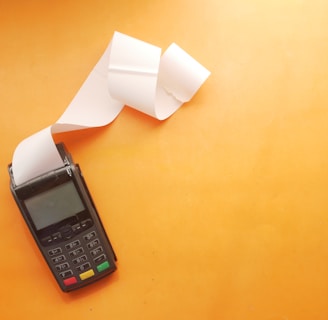What to Check Before Signing a Property Purchase Agreement in Egypt
When considering a property purchase in Egypt, it is imperative to understand the property title and its ownership status thoroughly. The property title serves as a legal document that establishes ownership rights and outlines any encumbrances that may affect the property. Therefore, verifying that the seller is the legitimate owner is crucial. This can be achieved by requesting necessary ownership documents, which typically include the title deed and prior sale agreements, to confirm the validity of the ownership claim.
What to Check Before Signing a Property Purchase Agreement in Egypt
4/29/20254 min read


Understanding the Property Title and Ownership
When considering a property purchase in Egypt, it is imperative to understand the property title and its ownership status thoroughly. The property title serves as a legal document that establishes ownership rights and outlines any encumbrances that may affect the property. Therefore, verifying that the seller is the legitimate owner is crucial. This can be achieved by requesting necessary ownership documents, which typically include the title deed and prior sale agreements, to confirm the validity of the ownership claim.
Additionally, potential buyers should ascertain that there are no ongoing disputes related to the property. This involves investigating whether the property is subject to any legal claims or court disputes that could hinder the transfer of ownership. Engaging a local attorney or real estate expert can be beneficial in assessing any risks associated with the property title.
Moreover, checking for liens or mortgages is essential, as these financial encumbrances can result in future complications for the new owner. A property should ideally be free of outstanding mortgages or other financial liabilities, which could negatively impact the buyer's rights. Buyers can typically obtain this information from the relevant governmental authorities, which maintain public records pertaining to property ownership.
It is also critical to ensure that the property is registered appropriately with the local land registry or relevant governmental bodies. In Egypt, this involves verification that the property is included in the real estate registry, confirming that the title can be legally transferred without any issues. A thorough investigation of these factors greatly reduces potential risks associated with the acquisition of property and provides peace of mind to prospective buyers.
Assessing the Legal Framework and Regulations
Before entering into a property purchase agreement in Egypt, it is imperative to understand the legal framework that governs real estate transactions in the country. The evolving landscape of Egypt's real estate laws requires potential buyers to be well-informed to navigate the process effectively. Foreigners considering property investment must adhere to specific legal stipulations concerning ownership. Typically, foreign nationals can purchase property, but there are restrictions on the percentage of ownership in certain areas, emphasizing the importance of comprehensive due diligence.
The role of the Notary Public is also crucial within the property transaction process. A Notary Public in Egypt is responsible for authenticating legal documents and ensuring that the parties involved in the transaction are adhering to the established laws. This includes verifying that the seller has the legal right to sell the property and that the property itself is clear of any encumbrances or legal disputes. Buyers should ensure that the Notary Public conducts a thorough verification process before finalizing any agreements.
Moreover, hiring a qualified lawyer who specializes in Egyptian real estate law is highly advisable. An experienced attorney can provide critical insights into the legal terminology used in property purchase agreements and highlight any potential risks. They can also assist in reviewing the contract to ensure that it aligns with the buyer's interests and adheres to local regulations. Understanding the intricate details of property laws and the legal obligations outlined within the purchase agreement is vital for a smooth transaction. Ignoring these aspects could lead to significant complications later on, underscoring the necessity of professional guidance during the process.
Conducting a Thorough Property Inspection
Before finalizing any property purchase agreement in Egypt, it is imperative to conduct a thorough property inspection. This step serves as a safeguard against potential future issues that could arise from hidden defects or concerns regarding the property’s condition. Firstly, buyers should assess the overall condition of the property, examining both the interior and exterior thoroughly. Look for any visible signs of wear and tear, such as peeling paint, damaged roofing, or worn flooring, all of which may indicate deeper, underlying problems.
Structural integrity must be prioritized during this inspection. Any evident cracks in the walls or foundation may suggest significant structural issues that could lead to costly repairs down the road. Additionally, checking for signs of water damage, such as mold or mildew, is crucial, as this may affect not just the surrounding area but also the health and safety of future occupants.
Compliance with local building codes is another critical factor. Prospective buyers should ensure that the property adheres to all required regulations, which could include safety guidelines, zoning laws, and any necessary permits for structural modifications. Non-compliance can result in fines and additional expenses, thus making thorough inspections essential.
Furthermore, understanding the surrounding neighborhood is vital to the overall enjoyment and value of the property. Investigating amenities such as schools, parks, and public transportation can significantly influence the property's market value over time. To achieve the most accurate assessment, it is advisable to hire professionals for comprehensive inspections and appraisals. These experts can identify issues that may not be apparent to untrained eyes and provide an objective evaluation of the property's worth, ultimately protecting buyers' investments.
Evaluating Financial Obligations and Payment Terms
When considering a property purchase in Egypt, it is paramount to thoroughly evaluate the financial obligations associated with the property. Understanding the payment structure is not only crucial for budgeting but also for ensuring that all financial commitments are clear from the outset.
Firstly, it is essential to review the property price. This price, while often set by the seller, can be negotiable depending on market conditions and the specific circumstances of the transaction. A comprehensive understanding of the asking price, including recent comparable sales in the area, can provide leverage during negotiations.
Secondly, deposit requirements should be clearly outlined. Typically, a deposit ranging from 10% to 20% of the purchase price is required to secure the property. This initial payment demonstrates your commitment and may also influence the terms of the purchase agreement. Ensure that the conditions under which the deposit is refundable or not are clearly stated in the purchase agreement to avoid future disputes.
Next, payment schedules need to be established. Many property transactions in Egypt include installment payments, and these should be explicitly defined, including the amounts due and the timelines. Understanding the implications of a flexible payment schedule, especially regarding potential late fees and penalties, is crucial for maintaining financial stability throughout the transaction.
Taxes and other fees must also be factored into the overall cost of purchasing property. This includes property transfer taxes, registration fees, and any applicable maintenance costs. Each of these costs can influence the total financial outlay and should be discussed with a legal advisor to prevent any unexpected charges.
Moreover, having your funding secured ahead of time is a vital aspect. Whether you opt for a mortgage, personal loan, or another financing option, understanding the terms and implications of these financial tools is essential before signing any agreement. Thoroughly evaluating your financial obligations and payment terms ensures a smoother transaction process, allowing for better financial planning and peace of mind as you move forward with the property purchase.
